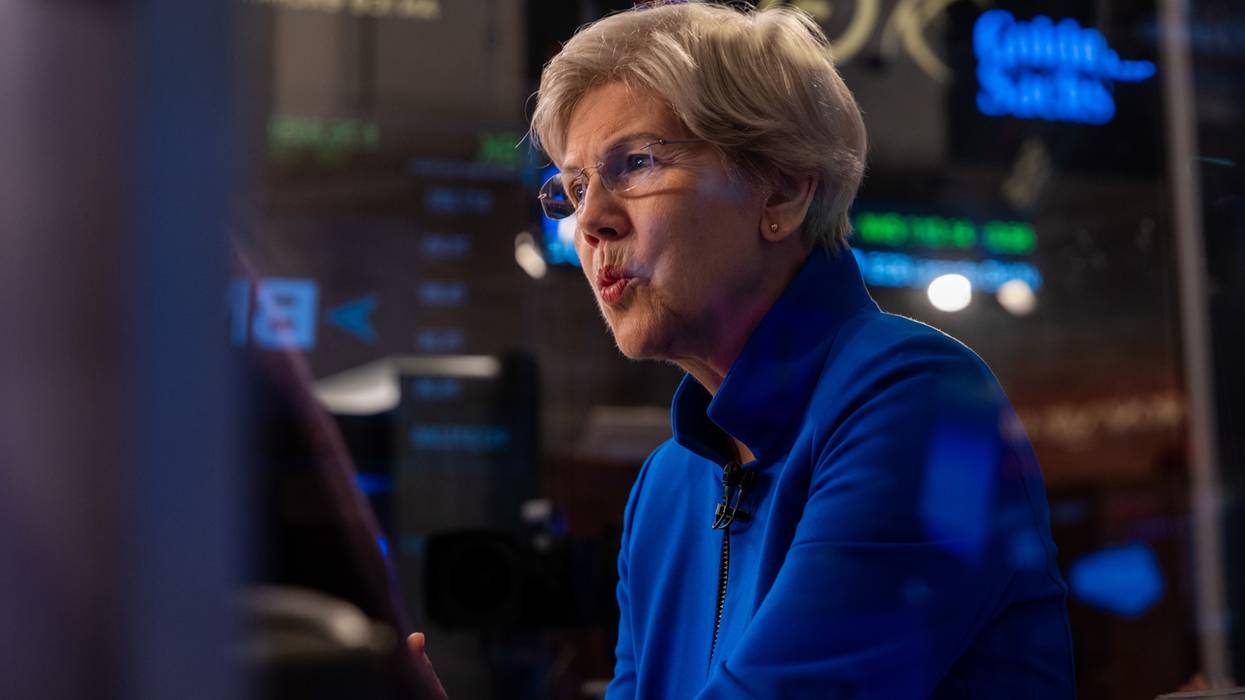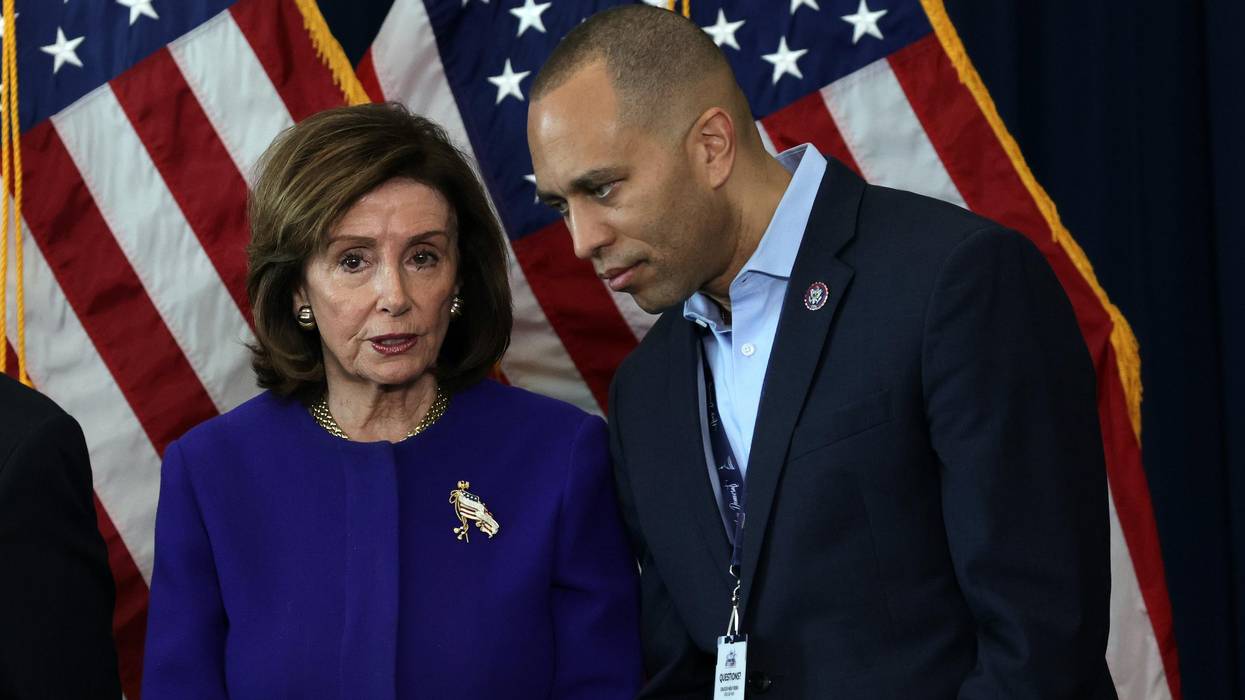102 House Democrats, Including Jeffries, Help GOP Send Crypto Bill to Trump's Desk
"Congress surrendered to the onslaught of crypto political spending and legitimized the world's biggest Ponzi scheme," said one GENIUS Act critic. "They also forfeited an opportunity to stop Trump's massive crypto grift."
More than 100 Democrats in the U.S. House of Representatives helped Republicans send what would be the country's first major cryptocurrency law to the desk of President Donald Trump, despite warnings that the legislation would not only further his corruption, but also "expose our financial stability, national security, and consumer protections to greater risk."
All but a dozen voting Republicans and 102 Democrats—including House Minority Leader Hakeem Jeffries (N.Y.)—supported the Guiding and Establishing National Innovation for U.S. Stablecoins (GENIUS) Act, which last month passed the Senate 68-30, with support from 18 Democrats.
If signed by the president, as is expected, the bill would create a regulatory framework for stablecoins, which are pegged to the value of existing assets such as the U.S. dollar. The Trump family's World Liberty Financial has issued the stablecoin USD1.
@housedemocrats.bsky.social Shame on all of you. You have no foresight and no backbone.
[image or embed]
— Jodi Jacobson (@jljacobson.bsky.social) July 17, 2025 at 5:52 PM
Advocacy groups and Democrats critical of the GENIUS Act, and other bills making their way through Congress during "Crypto Week," have highlighted how the legislation would "bolster Trump's business empire while putting American interests at risk."
Leading House Democratic opposition to the GOP's package is Financial Services Committee Ranking Member Maxine Waters (D-Calif.), who warned last week that "these bills would make Congress complicit in Trump's unprecedented crypto scam."
As Politico detailed Thursday:
Waters and other Democrats called for presidential ethics provisions to be added to the bills, pointing to the Trump family's business entanglements in the crypto industry. Trump and his sons have stakes in several crypto ventures, including a company they launched last year that issues a stablecoin and could benefit from the GENIUS bill that is now awaiting the president's signature.
But a growing bloc of the party has joined Republicans in lining up behind the digital asset industry's Washington agenda, a sign of crypto firms' ascendance as a political force. Companies in the crypto sector have poured hundreds of millions of dollars into influence efforts, and a mountain of super [political action committee] money is threatening to target lawmakers who stand in the way of the industry's goals.
After Thursday's vote, Bartlett Naylor, a financial policy advocate for the consumer advocacy group Public Citizen, declared that "today, House members piled venality onto perversion onto corruption. In approving this crypto-enabling bill, Congress surrendered to the onslaught of crypto political spending and legitimized the world's biggest Ponzi scheme."
"To add insult to injury," Naylor added, "they also forfeited an opportunity to stop Trump's massive crypto grift, some of the most heinous and flagrant corruption in American presidential history."
RM @repmaxinewaters.bsky.social slams Republicans’ UNSTABLE Act:“The UNSTABLE Act creates the appearance of a federal framework for #stablecoins, but it does not provide the Federal government with the full authority it needs.” | tinyurl.com/5t2skxvnWATCH: www.youtube.com/watch?v=BQWy...
[image or embed]
— U.S. House Committee on Financial Services - Democrats (@ushousefsc.bsky.social) July 17, 2025 at 1:23 PM
In addition to sending the GENIUS Act to Trump, the House advanced two other crypto bills on Thursday: the Digital Asset Market Clarity (CLARITY) Act, which would create a regulatory framework for digital asset markets, and the Anti-CBDC Surveillance State Act, which would prevent the Federal Reserve from issuing a central bank digital currency (CBDC).
All Republicans present and 78 Democrats backed the CLARITY Act, while just Democratic Reps. Jared Golden (Maine) and Shri Thanedar (Mich.) voted alongside the GOP to pass the CBDC ban. Both of those bills still need Senate approval.



